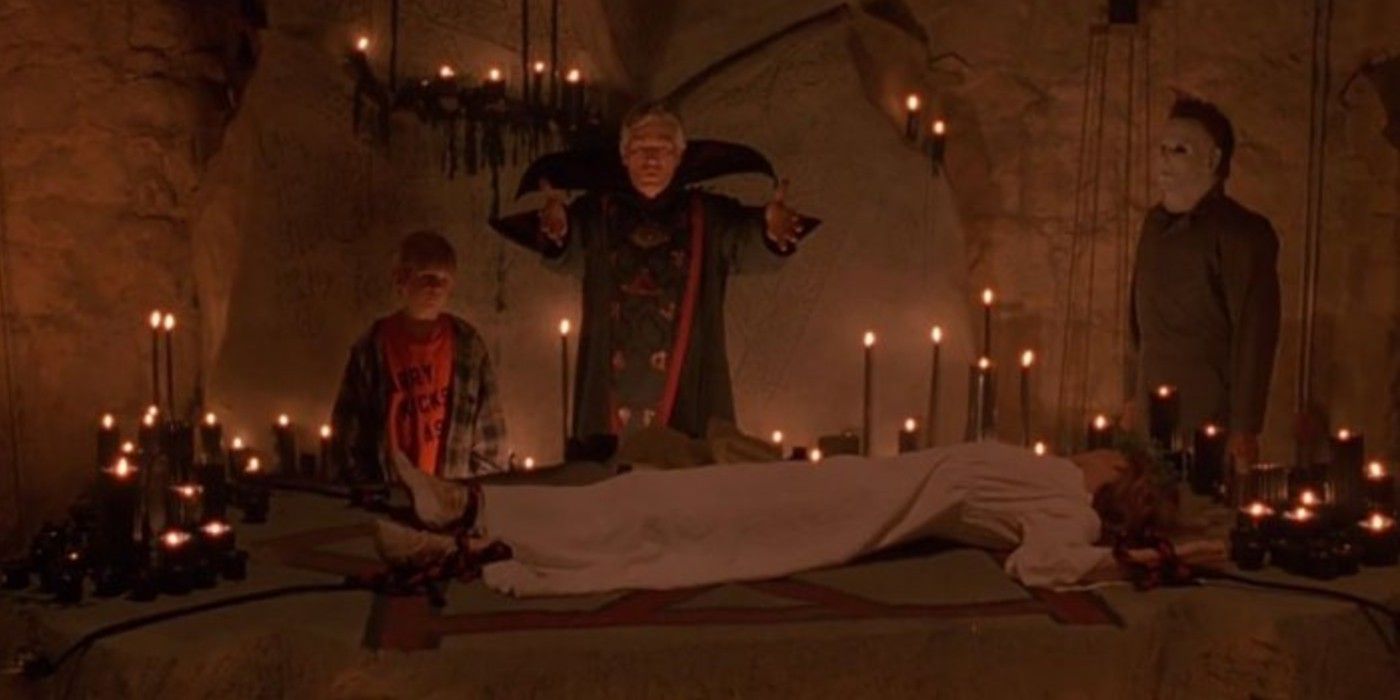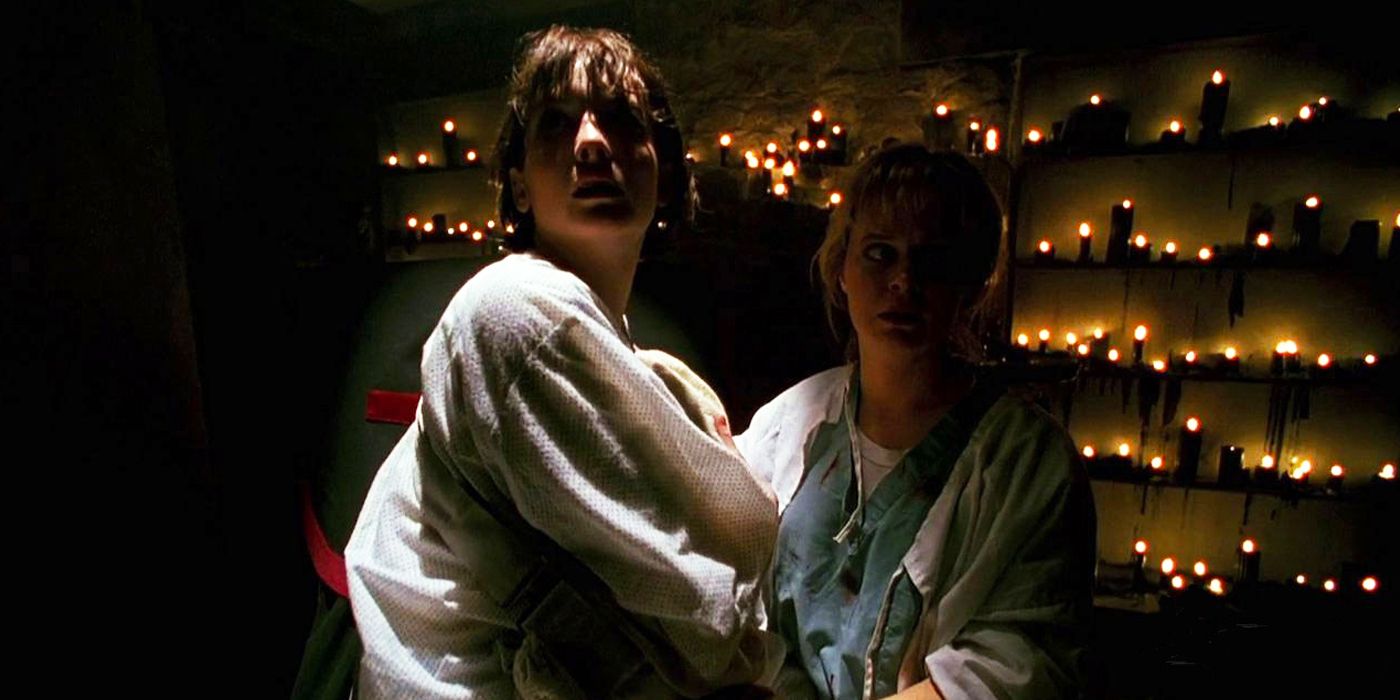The Halloween series has grown and changed over the decades, but one element that most fans would like to forget is the Cult of Thorn and their hold over Michael Myers.
The Halloween franchise has managed to remain relevant since its inception, but during the middle of the series, the movies started to flail for help. With Jamie Lee Curtis’ Laurie Strode out of the picture, the films doubled down on Dr. Loomis and introduced Jamie Lloyd into the mythology. The later Halloween films still felt like they needed more and began to doubt themselves, so Halloween 6: The Curse of Michael Myers turned to the enigmatic Cult of Thorn for backup.
The Cult of Thorn have been around for thousands of years and, in order to preserve their society and keep their tribes alive, they place the Curse of Thorn on an unsuspecting child who is then compelled to kill their whole family on Halloween night. This also reveals Michael Myers has been hearing a voice inside of his head that has told him to do these evil things, as he's supernaturally willed to be the cult's puppet. As Michael's sentence is nearly up, the Cult of Thorn tries to pass the curse over to Danny Strode, Michael's nephew, but their plans are intercepted.
The Cult Of Thorn Placed A Curse On Michael Myers That Makes Him Kill
One of the biggest problems with Halloween’s Cult of Thorn is that they’re a group who heavily de-mystify Michael. The introduction of the cult and what they represent is intended to turn Myers into a tragic figure who is more a perpetually tortured victim of circumstance than the ruthless killer he’s otherwise been seen as. To some degree, this concept does play to the idea that Michael is just some pure force of evil, but in this scenario it’s a force that’s been pushed onto him against his will, rather than a darkness that manifests inside him.
This curse even explains the inhuman strength of Michael Myers. The Cult of Thorn primarily tries to explain the supernatural circumstances that surround Michael and how he’s been able to survive as much as he has, but this wealth of lore doesn’t make Myers any more intimidating. At this point in the franchise, everyone has basically accepted that Michael is an unstoppable killing machine and his resilience is the element from this story that is the least in need of an explanation. It’s also very dangerous to suddenly add mysticism and supernatural elements to what’s otherwise been a grounded slasher series.
When Halloween: H20 rolls around, it erases the events of the later Halloween sequels, including the Cult of Thorn, and the 2018 legacy sequel also wisely leaves them in the past. If te Cult of Thorn wasn’t erased, the Halloween series would likely run the risk of succumbing to an increasing amount of supernatural elements. Halloween 6 also shows evidence of the curse passing over to Dr. Loomis, so he likely would have been turned into an unwilling villain in a way that might have felt untrue to the franchise. It’s a relief that the series was never given the opportunity to truly stray away from its core. A mysterious Michael Myers is a frightening Michael Myers.


